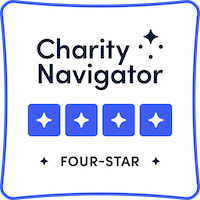Community Day Services
Little City is dedicated to creating a healthy and stimulating balance of work, educational experiences, and recreational opportunities for all individuals with intellectual and developmental disabilities. Adult programming at Little City is open to both residents and the community at large and provides a wide range of offerings to help participants flourish in settings that support their specific needs.
Little City’s Community Day Services provide adults with activities enabling them to become more independent, productive, and integrated into the community.
LIFE & VOCATIONAL SKILLS
The Vocational Skills program is designed to teach adults (18 and older) self-help skills, social and communication skills, and a variety of leisure and work skills through training opportunities in a safe and structured environment.
Participants are assessed for proper job preferences and capability and are paid for their completed work. Additionally, instructional support is offered to assist individuals learn new work tasks, positive workplace habits and to be as productive as possible.
The Life Skills program is designed to enhance self-advocacy, communication and independence through an array of structured classes, experiential learning opportunities and community integration. Participants are engaged in activities such as cooking, music, community planning and physical fitness as well as opportunities to learn more about rights, responsibilities and relationships.
EMPLOYEE DEVELOPMENT SERVICES
The Employee Development Services (EDS) Program develops skilled employees (18 and older) through a diversified and accessible transitional training program. EDS assists individuals seeking employment to develop or reestablish basic interpersonal skills, attitudes, and work behaviors needed to achieve positive employment outcomes. EDS emphasizes engagement techniques designed to maximize staff and participant interaction. The ultimate goal of EDS is to prepare individuals to transition to Little City’s Employment First Program and to eventually become active job seekers in the community with competitive, paid work.
AUTISM SPECTRUM ENGAGEMENT
Autism Spectrum Engagement (ASE) is designed to maximize staff and participant interaction for adults (18 and older) on the autism spectrum. Through a structured environment, participants are offered support in life skill development, social skill acquisition, sensory feedback experience and behavioral modification to promote personal growth, social inclusion, community integration and overall independence.
CENTER FOR THE ARTS
Little City’s renowned Center for the Arts (CFA) is an award-winning program that provides new possibilities for communication and expression. The center cultivates an individual’s unique talent and creates a sense of empowerment and accomplishment, working with such mediums as drawing, painting, photography, ceramics, and sculpture.
HORTICULTURE
The horticulture program at Little City helps develop numerous skills in gardening and landscaping through four main teaching aspects: general horticulture skills, the life cycle of plants, care, and maintenance of indoor plants and outdoor gardening. Participants work in a team environment to maintain a garden and engage in social interaction with volunteers. Through instructional classes, participants have full involvement in the planning, planting, and care of two fields in which they grow vegetables, fruits, herbs, and flowers.
SPECIAL RECREATION & FITNESS
Recreation and fitness – including Special Olymics – are part of the overall quality of life for individuals with intellectual and developmental disabilities. Recreational activities target physical health and mental wellbeing and include team and individual sports, a fully equipped swimming pool, gym, and workout facility, and team competitions.
GRAYSLAKE CENTER
144 Commerce Drive
Grayslake, IL
Contact: Shelly Wilim
[email protected]
MAIN CAMPUS
1700 W. Algonquin Road
Palatine, IL
Contact: Shawna Pearson
[email protected]


